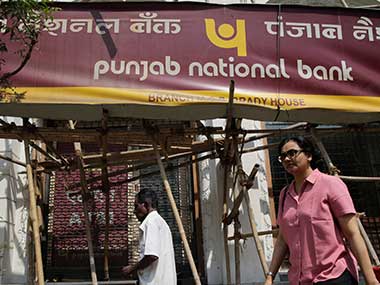On 12 March 2018, this writer had said in an earlier Firstpost article that in a regime of carefully monitored borrower behavior through a CIBIL (Credit Information Bureau (India) Limited)-like mechanism, the need for a convoluted instrument like letter of undertaking (LoU) or letter of comfort (LoC) would be rendered redundant. It is gratifying to note that the banking regulator Reserve Bank of India (RBI) has stepped in the very next day and banned the issuance of LoU and LoC for financing imports though it is yet to mandate a comprehensive corporate borrower behavior monitoring regime. By acting swiftly, the RBI has halted wannabe Nirav Modis in their tracks. What Nirav Modi did was to pull a fast one on the banking system—he obtained forged LoUs in collusion with two employees of the Punjab National Bank (PNB) and used them to get import financing from foreign branches of other Indian banks on attractive terms (around 2 percent per annum interest). LoU can be likened to a general character certificate an applicant in the job market is expected to obtain from referees. The RBI has stopped this lulling and potentially deceptive practice even while giving its thumbs up to Letters of Credit (LCs). RBI has rightly come to the conclusion that bland LoUs – genuine or forged, are out of sync with modern banking mores and norms. There is a well-regulated regime for LCs what with LC being governed by UCP 600 issued by International Chamber of Commerce (ICC). Every LC bears a mention of the same. In case of any dispute between importer’s bank and exporter’s bank, norms given in UCP 600 needs to be referred. More fundamentally, LCs are not condescending character certificates but genuine trade transactions backed by genuine import documents and financed by banks. An importer’s bank can be called upon by the exporter’s bank to pay up in the event the importer defaults. It is a genuine bank guarantee emanating from trade documents unlike LoUs that are issued in vacuum although supposedly based on the track record of the account holder. [caption id=“attachment_4383699” align=“alignleft” width=“380”]  Representational image of Punjab National Bank. AP.[/caption] Normal trade credit is unlikely to be hampered though as a result of the RBI ban. However, costs would increase for importers and a profitable business avenue for foreign branches of banks would be a thing of past. Importers were raising these LoUs at a cheaper rate than what they would have done had they gone in for direct dollar financing. Another issue will be that since importers will now have to buy dollars from the market, the rupee could come under pressure. The move is likely to hurt large importers severely. A corporate treasury official estimated that the LoU discount market, mainly frequented by the jewels and gem trade, was at about 30 percent of the country’s total imports. According to him, now the business risk for importers will increase because they will need higher finance limits from banks, which banks are anyway reluctant to provide. It is just as well that the RBI has asked importers to transparently ask their own banks for import financing instead of hiding their true colors behind the cloak of LoUs. But genuine importers should not be faulted for aspiring for cheap credit abroad through foreign branches of Indian banks especially where the lead banker in India (PNB in Nirav Modi’s case) has no presence in the foreign country from where the imports are to be made. As a follow-up measure, the RBI should therefore put in place a information-sharing regime under which all banks would share through an independent intermediary like CIBIL all vital information impacting on the credit worthiness of a borrower. Had there been such a regime, Axis Bank and Union Bank would not have been driven to relying on LoU from PNB in L’affaire Nirav Modi fraud. If the Right to Information (RTI) forms the bedrock of guaranteeing governmental transparency and keeping executive on its toes, information-sharing of borrower behavior should form the bedrock of banking lending regulations. (The writer is a senior columnist. He tweets @SMurlidharan)
LoU can be likened to a general character certificate an applicant in the job market is expected to obtain from referees
Advertisement
End of Article


)
)
)
)
)
)
)
)
)



